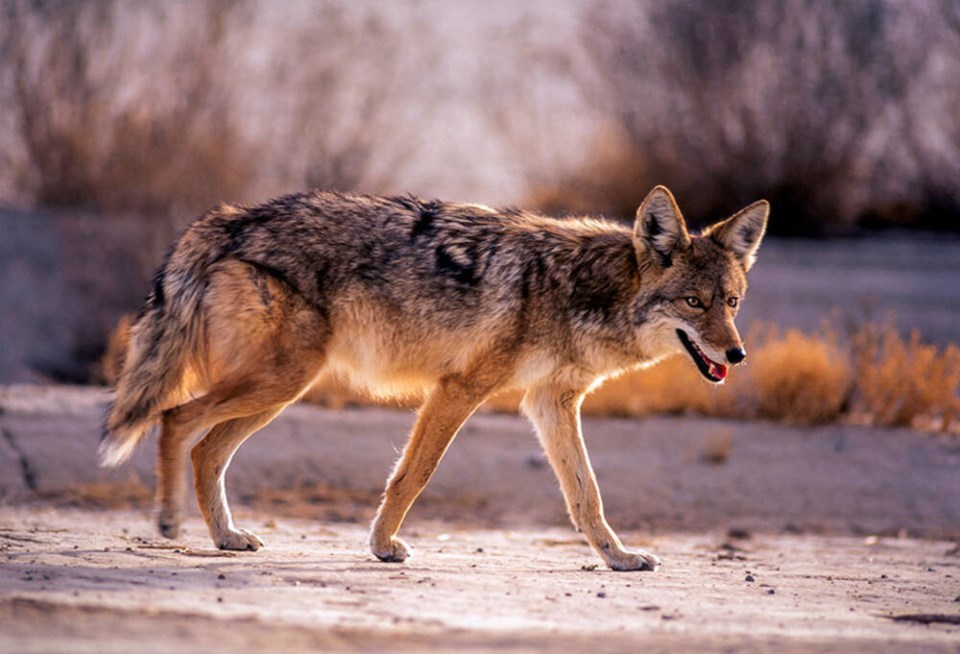The number of coyotes being spotted on the North Shore and in the Tri-Cities is way up this year, according to a local animal advocacy group.
And a higher call volume regarding coyotes indicates a higher need for public education, said Lesley Fox, executive director of the Association for the Protection of Fur-Bearing Animals – better known as the Fur-Bearers.
The group launched an awareness campaign for people on the North Shore and in the Tri-Cities aimed at correcting any human misbehaviour before it results in someone getting hurt or any wild animals getting killed.
The group is using targeted ads and distributing door hangers that carry the message people should never feed wild coyotes.
It’s hard to know exactly how often that happens, Fox said, but they do receive anecdotes about it frequently.
“Oftentimes, it’s people tattling on their neighbours. They know their neighbours are feeding hot dogs to coyotes or sometimes we’ve heard people feed dog food or chicken dog treats,” she said.
Often, it’s out of the misguided belief they are helping animals in need, Fox said. They’ve also been alerted to people leaving food out for wild animals just so they can bait them in closer to get photos or video for their social media accounts.
Anyone who is aware of that happening should call the B.C. Conservation Officer Service, Fox said.
Under the B.C. Wildlife Act, it is an offence to feed a bear, wolf, cougar or coyote. Earlier in 2022, the B.C. Conservation Officer Service announced it had arrested a West Vancouver man for deliberately doing just that. Charges against the man are still being considered by the Crown.
More importantly, though, it’s in the best interest of the animals to let them survive on natural food sources.
“When you offer food or something that’s perceived as a treat, it fundamentally changes their behaviour, and as a wild animal that’s problematic,” Fox said. “It might make a coyote more aggressive. Potentially, they could nip.… They can cross highways or busy streets thinking that they might be getting a food reward.”
And, Fox noted, wildlife that has been fed is far more likely to end up dead.
“This is just so preventable,” she said.
So far, the campaign has had a very positive response, Fox said, and hundreds of door-hangers have been distributed by North Shore residents who requested them for their own neighbourhoods.
“Most North Shore residents are very aware that they’re living in a rain forest and wildlife is part of that deal,” she said. “I think most people who live on the North Shore enjoy having animals as their neighbours and are just trying to do the right thing.”
Conservation Officer Simon Gravel said coyotes are an expected part of the urban landscape and they aren’t necessarily a threat. But, he added, the more people interfere with them, the more likely they are to become a problem.
If a coyote does become aggressive, it’s best to seek shelter, if possible. When that’s not an option, stand your ground, make yourself appear big, and yell or throw sticks, Gravel said.
“We advise you to not run,” he said.
Anyone who spots an issue, either with an aggressive coyote or with someone attempting to feed them, is urged to call the province’s hotline at 1-877-952-7277.



